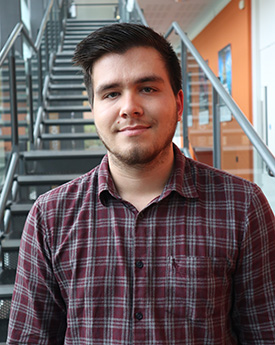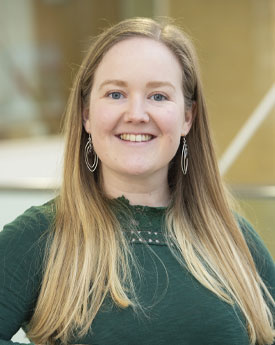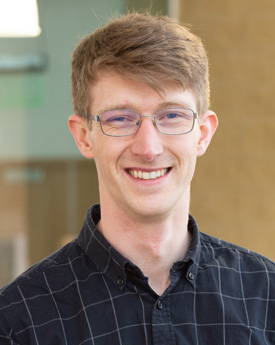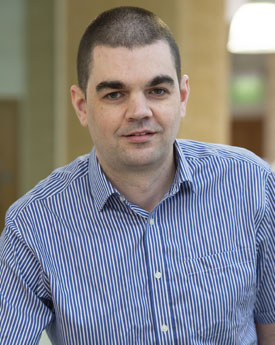Stochastic Modelling and Simulation are core methodology areas in modern management science and business analytics, machine learning, and artificial intelligence. They can be employed to support decision-making in a wide range of contexts in which taking account of stochastic variation is important. These models, methods, and algorithms are of key importance in helping gain insight into complex situations, designing well-functioning systems, developing well-performing procedures, and making decisions under uncertainty or risk.
Group members have substantial collective expertise in developing methodology in this area, partnering with industrial and other partners to employ it to real-world problems and teaching these topics to the highest standard at all levels.
Methodology research and collaboration
The methodology expertise in both stochastic modelling (applied probability) and simulation at Lancaster University is recognised as being of world-leading level, and the group members regularly publish in leading academic journals. The group members are regularly invited to co-organise and present at specialised world-leading conferences such as INFORMS Applied Probability Society Conference, EURO WG Stochastic Modelling Meeting, INFORMS Winter Simulation Conference, ORS Simulation Workshop, European Conference on Queueing Theory, etc.
The group members specialise in topics featured on their personal web pages and are supported by several visiting researchers and professors emerita. The collective expertise currently covers the following research subareas:
Simulation modelling
Amjad Fayoumi and Luke Rhodes-Leader: analysis methodology, modelling methodology, discrete-event simulation, dynamic simulation, agent-based modelling and simulation, validation and calibration of simulation models on empirical data, multi-fidelity modelling, simulation optimisation, etc.
Optimisation under Uncertainty
Alp Arslan, Yu Jiang, Peter Jacko, Chris Kirkbride, Dong Li, Rob Shone: Sequential decision making, stochastic dynamic programming, approximate dynamic programming, simulation-based dynamic programming, reinforcement learning, data-driven optimisation, Markov decision processes, stochastic optimisation, decision theory, decision analysis, decision trees, distributionally-robust optimisation, stochastic game theory, stochastic optimal control, resource allocation under uncertainty, resource-constrained project scheduling, stochastic scheduling, optimal search, Markovian and restless multi-armed bandits, index policies, etc.
Learning from Experimentation
Peter Jacko, Dong Li: Reinforcement learning, machine learning, design and analysis of sequential experiments, A/B testing, data-driven learning, Bayesian learning, Bayesian decision theory, bandit algorithms, computer simulation experiments, adaptive randomised controlled trials, demand learning, dynamic pricing, etc.
Queueing and Random Systems
Alp Arslan, Amjad Fayoumi and Rob Shone: steady-state queueing theory, time-dependent queueing systems, queueing networks, queueing disciplines, performance evaluation, social networks, systems analysis and design, business process modelling, process mining, requirements modelling, modelling with random variables and stochastic processes (Markov chains, Markov processes), data-driven modelling, routing/dispatching policies, staffing of service systems, etc.
Partner with us
The impact on organisations and society is a priority for the group. Our research and knowledge transfer have achieved major improvements in decision making, leading to boosted efficiency of allocation of resources, improved automation, enhanced service level and customer satisfaction, decreased risks, increased revenue and/or reduced costs. Our group members have engaged with companies across various industries, including government and non-profit organisations, automobile manufacturers, healthcare and pharmaceutical organisations, aviation companies, telecom providers, retailers, and numerous SMEs. As an academic group, we can give independent suggestions and are not tied to any software product. Our solutions always consider the most practical approach and the best match for your organisation.
Teaching and problem-solving
PhD: The group members have led the organisation of the NATCOR PhD-level course on Stochastic Modelling biennially since NATCOR’s inception in 2007. They also co-organised the EURO PhD school on Reinforcement Learning Applied to Operations Research held in July 2022. They are involved in the supervision of PhD students on the PhD Management Science and PhD Statistics and Operational Research programmes (and in the supervision of postdoctoral research associates), many of which are in collaboration with industrial and/or academic partners worldwide.
Find out more
For more information, including a list of recent MSc dissertations and PhD theses, visit the research pages or the list of current PhD students below. Please contact Dr Peter Jacko for any queries.























